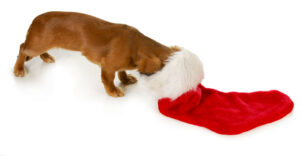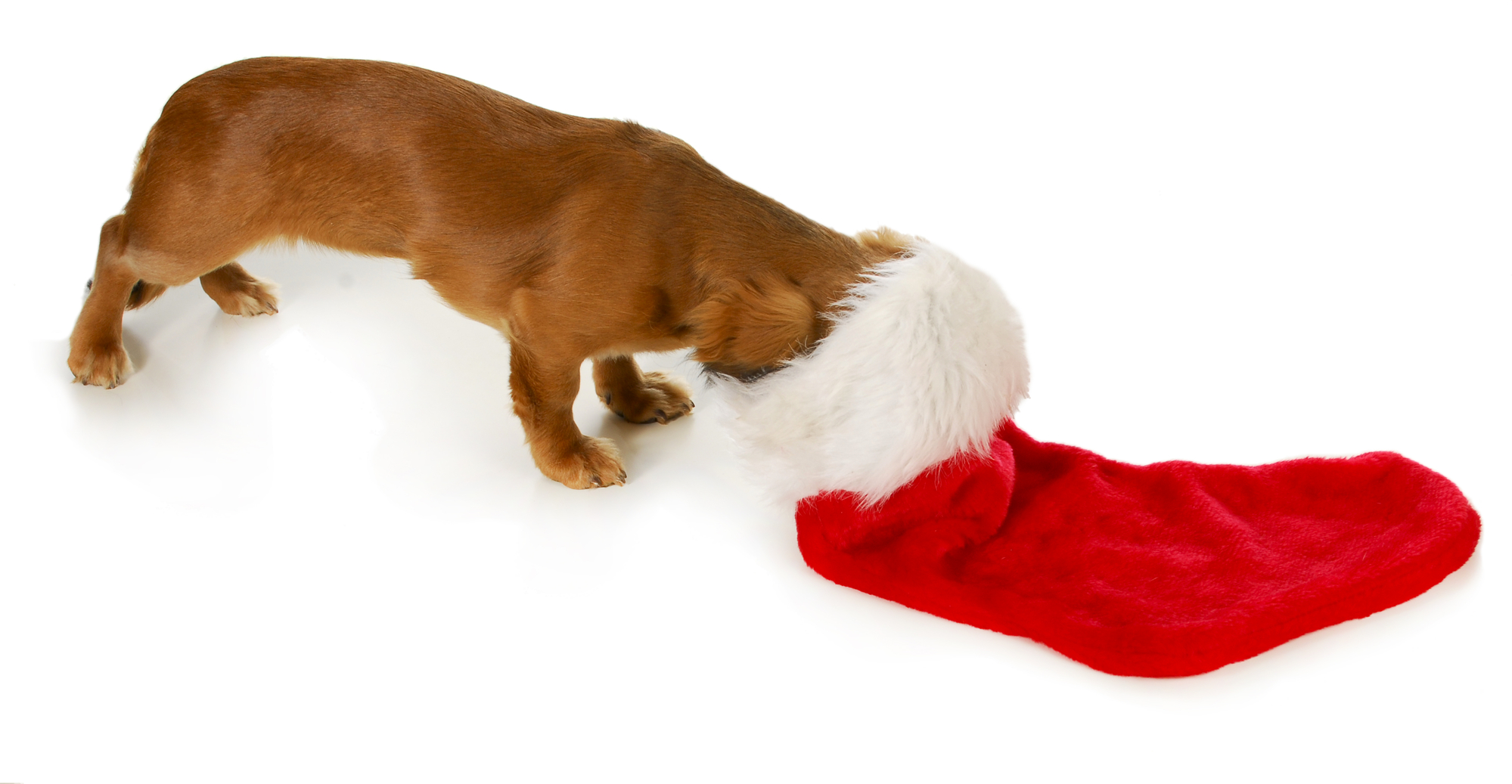Prepare Your Dog For The Holidays
Every year, as holiday preparations are made and invitations go out, a lot of dog owners will begin to feel a little twinge of doubt. Will their dog behave with guests? Are they going to have to endure the chaos of tearing up the house, barking, or having accidents? If you’re reading this, you have already felt those pangs of guilt, and this year you have chosen to be proactive.
Will their dog behave with guests? Are they going to have to endure the chaos of tearing up the house, barking, or having accidents? If you’re reading this, you have already felt those pangs of guilt, and this year you have chosen to be proactive.
The sooner you start preparing your dog for the holiday chaos, the more confident, calm, and happy your season will be. Waiting until the last minute is a recipe for failure for you and your dog. This isn’t BS. Having personally trained thousands of dogs and achieved successful outcomes for clients across the globe, I’ve seen how early intervention transforms what could be a stressful scenario into one of peace and connection. Even with dogs that have experienced the chaos of holidays past, there is always the potential for improvement!
How Holiday Disruptions Impact Dog Behavior
Dogs thrive on the predictable. Routine assures security. When schedules shift and guests start arriving, routines start to change. Schedules become haphazard, dogs can get anxious, reactive, and occasionally destructive. Imagine a dog used to a fairly routine lifestyle suddenly hearing doorbells, car doors, lots of new voices, experiencing new smells and human behaviors. Without preparation, stress can and often does influence your dog’s behavior.
It’s not just “bad behavior,” it’s a response to uncertainty. Anxiety, over-stimulation, miscommunication are the triggers. Left to their own devices, what seems like occasional mishaps can become long-term behavior issues. Early groundwork that establishes consistent, clear expectations and familiar cues can prevent backslides in behavior.
What You Must Understand to Succeed
To manage your dog’s behavior this holiday season, you need to understand:
- Hope is not a plan of action. Hoping your dog “will grow out of it” usually means enduring more problems, more stress, more anxiety. Your dog isn’t the issue. He is simply responding to the huge upheavals in his ordinary routine the only way he knows how. It’s up to us to help him through that.
- Discipline and consistency are not negotiable. Not as punishment, but as structure. A dog only becomes reliably obedient when expectations are clear, feedback is consistent, and rules are enforced, even when he ‘doesn’t want to’, or ‘doesn’t like it’.
- You are the catalyst for change. Dogs don’t change because they want to. They change because of clear leadership and consistent communication.
Of course, you have to want to change your dog’s behavior. Once you know how, every strategy you apply becomes more effective.
Practical Strategies to Put into Place Now
These are behavior changes and routines you can begin today. Small shifts now create major dividends in just a few weeks, and prepare you for the harder tests on October, November and December. Halloween is a month and a half away. Thanksgiving is two months and two weeks, Hanukkah is just over three months, and Christmas is three months and 11 days as of this publication. Plenty of time to prepare!
Teaching Calm Greetings & Impulse Control
Guests entering the home are one of the biggest triggers. Before any big event, use leash management and teach your dog to settle when someone enters. Don’t allow jumping, barking, or rushing the door. Leash management prevents the dog from self-reinforcing for those types of behaviors. Reinforce calm behaviour instead (enroll in our Online Training For Dogs to learn effective strategies), so the dog clearly understands the expectations for greeting guests and learns to access alternate forms of reinforcement for appropriate greeting behavior.
Maintaining Housebreaking Amid Disruption
Holiday meals, late nights, schedule changes often lead to accidents. Stick to your existing housebreaking schedule as closely as possible. There are several strategies you can adapt to ensure an accident-free holiday season. If travel is involved, adapt your routine before you leave and be sure to employ the use of a crate. The familiarity of the crate is helpful on keeping schedules on track. For refreshers during this season, use our Housebreaking and Crate Training Guides.
Reducing Anxiety & Stress
Holiday noise, lights, guest traffic—can elevate your dog’s anxiety. Watch for signs: panting, restlessness, avoiding contact. Use retreat cues (crate, bed) to help your dog decompress. Introduce desensitization: simulate upcoming events (doorbell rings, visitors) in advance of the holiday season and practice frequently before the holidays arrive. For more, reach out for a Behavior Consult for more effective strategies to prepare your dog for the future.
Teach Your Dog How To Do Nothing
When your dog doesn’t know what to do, he tends to make poor choices. Training and socialization isn’t huge love-fests with lots of activity and arousal. Training is helping the dog learn to control his impulses. If you choose pacifier toys to help your dog occupy time, they must be safe, indestructible, and something the dog will enjoy for long periods of time. Hard chews or raw meaty bones will help offer a mental outlet without being over stimulating while your dog is confined to help take his mind off the crowded house or all the foot traffic. A suitable pacifier toy can prevent boredom-driven behavior.
Obedience. Use It Or Lose It
Practicing obedience only in quiet moments isn’t enough. Practice in real environments: around guests, music, cooking. Build obedience under pressure, so real-life distractions become routine. We offer Dog Training Online to help get you started, or you can schedule a Behavior Consult for effective strategies to help you reach your training goals.
Why Boarding Isn’t Advised
Boarding can feel like relief, but many dogs experience anxiety when away from home. The stress of being in an environment with so many other dogs, the social isolation of being away from the familiar scents and sounds of home, the abrupt change can compound stress. Worse, boarding doesn’t address the behaviors you are trying to avoid. If anything boarding for convenience can potentially create new ones that are equally annoying.
Too often, owners bring their dogs home from boarding to find that not only are the old problems still there, but new ones emerged. Real behavior change happens when it is identified, addressed and corrected consistently. That’s why training will always be a superior solution to either tolerating the behavior, or convenience boarding where often those same behaviors are reinforced.
Over the past 50 years of training dogs of all ages, breeds and degrees of behavioral difficulties, I can truthfully state that clients who start training their dogs as soon as they get them always fare better. In the circumstances of adult dogs with established behavior histories, the next best time is NOW. I’ve worked with families who dreaded the holidays because of their dogs’ behavior and decided to transform their experiences and create a dog they could not only live with, but enjoy before the next big event was planned. Owners who have taken the time to train their dogs report more relaxed dogs, calmer households, and dogs who handle holiday stress with greater confidence.
Being successful isn’t just a fantasy, it’s absolutely achievable.
Booking boarding spots for the holidays has to be done weeks in advance. Spots fill up fast. If you wait, you’ll be scrabbling for solutions and may have to rely on questionable sources to provide this service for you. I am not a fan of the fly-by-night ‘gig’ providers. Finding someone with a decent reputation is difficult the closer you get to the holidays. Don’t settle for another year of exasperation, start today and be prepared for when you need it most.
Here’s what to do now:
- Start practicing appropriate greeting behaviors using family, friends and neighbors.
- Revisit crate confinement intermittently every day
- Create a ‘safe space’ for your dog. Make sure the crate or retreat is comfortable and easily accessible.
- If you have concerns about your dog’s behavior, schedule a virtual consult while there’s availability. Spots are harder to come by the closer we get to the holidays.
These small actions will save you weeks of regret, stress, and setbacks . Secure your holiday preparedness with a definitive plan, early action, and guided support.
This holiday season shouldn’t have to be endured. Make it the first one you get to actually enjoy with your dog. With early intervention, the commitment to create change, structured routines, and proper guidance, your dog can be the companion you feel proud to share with your guests or bring to gatherings. Planning now gives you all the advantages to create meaningful change in your dog’s behavior. Who doesn’t want a calmer, stress free holiday season?


